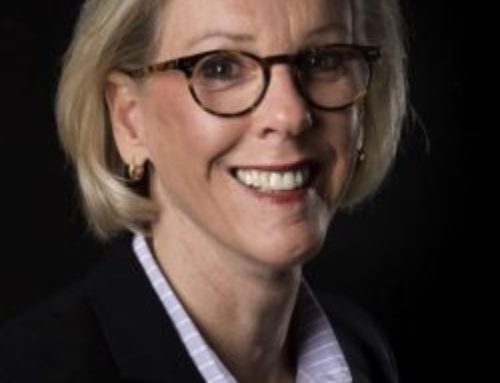There’s no separating the Christian faith of Tony Dungy the man from Tony Dungy the football coach.
By JOEY JOHNSTON
Tribune Staff Writer
(c) Tampa Bay Times. Originally published Aug. 11, 1996
TAMPA – It’s the pre-dawn quiet of another business day. But Tony Dungy already is awake and busy. Really, what else would you expect from a first-year National Football League head coach?
Dungy has learned to be an early riser, so he can accommodate his top priority. Juggling the Bucs’ roster? Watching film? Diagramming a new play? Practicing his pregame speech?
Nothing like that.
He reads the Bible.
In Tony Dungy’s world, where a bad snap can ruin a career, God is in control.
He cares about wins and losses. But his greatest glory lies not with the respect he has earned in the NFL. Football is passion. But it’s not life.
And if he thought coaching would change his relationship with God, if he felt it would prevent him from being a loving companion to his wife of 14 years, Lauren, or a good father to his three children, there would be one choice.
He would resign. Instantly.
“You can’t allow coaching to consume you,” Dungy said. “Or else you’ll flame out, you won’t last. I’m an upbeat person because I know that Christ is working through me. I have a mission on earth. But then I’m going to heaven.”
But then I’m going to heaven. He spoke evenly, almost matter-of-factly, like he just told you he’s going to the supermarket. Dungy has no dramatic tales of an alcohol or drug addiction, followed by a spiritual bailout. His faith never was about a roller-coaster experience. Instead, a steady incline.
Christian athletes often speak about temptation. How they fell, then were rescued by faith. Dungy’s greatest fear never was sin of the flesh, but perhaps the sin of pride. He’s leery about the trappings of celebrity, how the pursuit of a high-profile career can wreck a man’s family.
So he proceeds with cautious perspective.
“There’s always a danger of getting caught up in the moment,” Dungy said. “Winning is important because that’s what you’re judged on. But it’s not the most important thing in life. If you begin to think it is, then you’re going to have some problems.”
Dungy, 40, has been a committed Christian since his 1977 rookie season with the Pittsburgh Steelers. He stopped going to church regularly during college. Then his first-year Steelers roommate, Donnie Shell, sparked new interest.
Shell got Dungy to team chapel meetings, got him reading the Bible again, got him thinking.
He taught Dungy how to make God a priority. How to leave worries in His hands. How to live in faith. Pretty much things Dungy already knew from growing up in the Baptist church.
But now the sermon wasn’t coming from a pulpit. The pastor wore two Super Bowl rings. He was just like Dungy, studying a playbook, pushing himself in practice.
Soon, faith wasn’t just a Sunday thing. Dungy was walking it, talking it, living it.
And sometimes, defending it.
Bible thumper. Holy roller. God squadder.
Dungy has been the target of such nicknames. Christian athletes and coahes often are misunderstood or shunned. Non-religious observers deride post-touchdown prayers, calling them public displays of false righteousness.
“Sometimes religion gets thrown at you in the locker room; it’s a big turn-off for some people and a turn-on for others,” Bucs defensive lineman Brad Culpepper said. “People are skeptical, sometimes for good reason. You might hear a guy say “Praise Jesus Christ Almighty for this victory’ in an interview, then see him later out at a nude bar. That’s two different lives. And this guy says he’s a Christian?”
Tom Lamphere, Dungy’s former chaplain with the Minnesota Vikings, said Christians should be held to higher lifestyle standards. No one appreciates a hypocrite or someone who uses spirituality for self-gain.
“It’s very difficult to be a Christian in the locker room,” Bucs safety Todd Scott said. “The amount of temptation is unbelievable. You’re making good money. There’s incredible exposure to women. Maybe some casino invites you for a high-stakes poker game. We do not lead ordinary lives. It’s just harder to be a Christian when you’re a pro football player, more so than another line of work.”
Lamphere poses a test for Christians in the public eye: “Are you first giving glory to the Lord when no one is looking?”
Dungy worships privately, but wears a cross on his lapel or around his neck. Sometimes, he dons a T-shirt from a Christian organization.
“I’m not going to stop someone on the street and say, “If you don’t change your lifestyle, you’re going to hell,’ ” Dungy said.
But he hopes to set an example.
“If Magic Johnson uses his career to further AIDS awareness, we as a society tend to think that’s good,” Dungy said. “So if I have a religious experience and want to use my career to further Christian awareness, why is that bad? But I want to do it in the right way.”
Dungy’s example? He doesn’t smoke or drink. He had maybe 10 beers as a pro player, but didn’t like the taste. He doesn’t use profanity. He said Christianity influenced the hiring of his Bucs staff because he wanted men who shared his values. He didn’t want profanity-laced teachers.
If uncharacteristic practice-field anger causes Dungy’s language to slip, he will apologize to his players. As for the inevitable profanity among Buc players, the locker room bravado, Dungy said he blocks it out. When Dungy’s around, most players clean up their language.
He’s the opposite of every NFL coaching stereotype. He gets attention with eye-to-eye declarative sentences. He need not yell to be understood.
“You have to strain to hear him sometimes, but you make that effort,” Culpepper said. “Because what he says is good stuff. He’s a brilliant coach who treats us with care and concern. You don’t see that combination too often.”
“Tony Dungy is a Christian who happens to be a football coach,” said Richard Allen Farmer, his former pastor in Pittsburgh. “Not a football coach who happens to be a Christian.”
He doesn’t speak in tongues. He doesn’t hear voices. He doesn’t see the Virgin Mary. But somehow, Dungy has felt the hand of God.
“I didn’t have a dream or vision that showed me in an orange coaching uniform,” he said. “Like, “Hey, He’s telling me I’m going to Tampa Bay.’ God put me in the right positions, even when I couldn’t figure out the reason.”
Dungy’s earliest memories include the reading of family Bibles, the church where his grandfather was a Baptist minister, Christian youth activities. He attended services faithfully with his family in Jackson, Mich. But at the University of Minnesota, more than 600 miles away, his Sundays became too busy for church.
He remained a Christmas and Easter regular. Occasionally, he read the Bible. Big-time athletes weren’t dedicated churchgoers. Or so he thought.
Dungy went undrafted by the NFL. He had two career choices. A guaranteed contract to play quarterback for the Canadian Football League’s Montreal Alouettes. Or an offer to attend training camp with the Pittsburgh Steelers as a defensive-back candidate.
He made a pro-and-con list for both teams. Montreal had 10 positives. Pittsburgh had one: Chance to play in the NFL. He went to Pittsburgh. And his assigned roommate would be Shell, another defensive back.
Shell was aggressive and dynamic. He knocked on teammates’ doors at 7 a.m. for pre-practice Bible study. Every night Dungy and he talked about the challenges of being Christian men in what seemed a non-Christian world.
Dungy spent two seasons in Pittsburgh, including a Super Bowl XIII title. He became a do-everything defensive back, even an emergency quarterback. He felt fulfilled — as a Christian and a football player.
During Pittsburgh’s 1979 training camp, when the Steelers were the NFL’s most feared team, Dungy wandered into the room of offensive tackle Jon Kolb, sat on the bed and looked his friend in the eye. “I’ve been traded.”
Dungy was headed to the San Francisco 49ers, a woefully overmatched team with a rookie head coach, Bill Walsh. Shell and Kolb fought back tears as they bid Dungy farewell. They shared a final prayer.
“I thought Tony would be around for years,” Shell said. “But there are some things you aren’t meant to understand. But sure, I was wondering why.”
Dungy also wondered. The season was folly. The 49ers were 2-14 with a rookie quarterback (Joe Montana) and an almost-done Hall of Fame running back (O.J. Simpson) on their motley roster. Dungy was traded to the New York Giants the following March, then cut in training camp.
So what was positive about that lost season? Dungy always reasoned it was exposure to Walsh’s coaching system. Perhaps the encounter with adversity. Maybe new friendships. Whatever. He didn’t give it much thought.
Until years later.
Dungy ran into an old 49ers teammate, a guy he hardly knew. “Tony, you know you saved my life,” the man said. Dungy was puzzled.
“When you came to our team,” the man explained, “I was doing drugs, my world was falling apart. Then I saw you, a man who won the Super Bowl. You didn’t need drugs. You led a great life. You showed me that it was possible to be a winner and not do bad things. I got it back together. Because of you.”
It wasn’t a lost season, after all.
“Perhaps Tony will not cure cancer,” Farmer said. “But if he stops a dozen men from a shallow existence, then that’s a life well lived. Very few of us can say, “I helped change this world.’ But with Tony’s tremendous influence, he can say it.”
Or in the words of Kolb, “The only Jesus other people may see is the one who lives inside Tony.”
After his playing career, Dungy worked as an assistant coach in Pittsburgh, Kansas City and Minnesota. He rose to defensive coordinator with the Steelers and Vikings and four times was considered for head coaching openings, but was passed over. Some said it was because Dungy was black. But he felt those failed interviews had a purpose.
Perhaps it was a setup for Tampa Bay, where he received a six-year contract, unprecedented for a first-year NFL head coach. Either way, Dungy doesn’t believe in mere coincidence. Life has a plan.
Sometimes, the plan takes unexpected turns. Lauren Harris, a native of Sewickley, Pa., expected to meet her future husband as a freshman at Duquesne University. It didn’t happen.
“I always thought you met Mr. Right your first year in college, then you planned your graduation and your wedding,” she said. “Well, I was graduating and didn’t even have a serious boyfriend. Really, I thought I had blown it.”
She wasn’t going to settle for less. She was determined to stay single until she met the right person, someone who loved the Lord. So she took a job teaching sixth grade at her old school, Edgeworth Elementary. She moved back with her parents in Sewickley, back to her childhood friends, but not into the arms of a future Mr. Right.
She was busy with school, worshipping at St. Stephen’s Episcopal Church and casually dating. Then came a call from her pastor, John Guest. “Lauren, I’ve got a man you need to meet …”
Lauren learned this man — Tony Dungy — was the Pittsburgh Steelers’ new secondary coach. He had played professional football. An immediate turn-off. The only athletes she knew were self-centered and boorish. Not interested, she said.
“But he’s a Christian.”
Well, maybe, she thought. Just to learn about his walk with Christ. Friendship and nothing more.
Their first date was bowling. On later dates, they swam and biked. They attended services, then brunch afterward. They talked about finding a church home, common interests, how they would raise children. Everything except football.
“I liked him right away,” Lauren said. “He was gentle and compassionate. I noticed that immediately.”
Tony and Lauren were engaged by Christmas and married June 19, 1982 — about 11 months after the introduction.
“I feel the Lord guided me to Lauren,” Dungy said.
The Dungys apply Christian beliefs to their children — Tiara, 11, the serious, studious one; James, 9, the animal lover who could be a future forest ranger; and Eric, 4, the little athlete who punctuates practice-watching with chants of “Go Tampa Bay Bucs!”
Because of the tenuous stadium situation, the Dungys will rent their Tampa home. They are searching for a non-denominational church with a strong children’s program. Location is not an issue. They are accustomed to traveling at least 30 minutes for worship.
Even on home-game football Sundays, the Dungys will attend early morning or evening services. They play and pray as a family.
“The best way we can raise our kids is for them to see the love and respect Tony and I have for each other,” Lauren said. “That’s the best gift, the way kids achieve happiness and security.
“Really, our kids don’t know how lucky they are. Tony and I are both disturbed by the number of kids who are left to fend for themselves. The broken homes, the hopelessness, it’s so sad. Children are our future and so many are forced to grow up too fast.”
The Dungy parents surround their children with Christian friends and activities. They shelter them from music, movies or television shows that have inappropriate messages.
“Music is the biggest challenge,” Lauren said. “My kids like the beat of rap music. But the lyrics are very disturbing. You wonder what these people are thinking when they write this stuff.
“And it’s never a case where Tony and I go to a movie and say, “No, you kids can’t come. This is only for adults.’ That’s not setting a good example. We go as a family, share a good laugh, and they see that you don’t have to attend some vulgar movie to get your enjoyment.”
Dungy is determined to be a father for his children. He wants to be there for key moments, not agonizing over a late-night game plan. Football is passion. But his family, his faith — those are his life.
He doesn’t seek fame. He’d prefer to coach his team, set it aside until tomorrow, then head home like other fathers. Still, he’s unfailingly polite when approached. He signs autographs, appears on television shows. Grudgingly, he accepts that part of him belongs to his new community.
“I went to dinner with Tony in Tampa and as we walked down the aisle, I could hear the excited whispers, “That’s Coach Dungy … That’s Coach Dungy,’ ” Farmer said. “It’s a fishbowl existence.”
And if the world gets to be too much, Dungy always has his mornings, his quiet time.
“The responsibility I feel is to live my life to glorify God,” Dungy said. “I have been put in a high-profile, influential position. So I have to be diligent with a high standard of living. I have to honor God always.
“It’s not something you do occasionally. It becomes a function of your daily life. And it gives you a joy like nothing else.”





